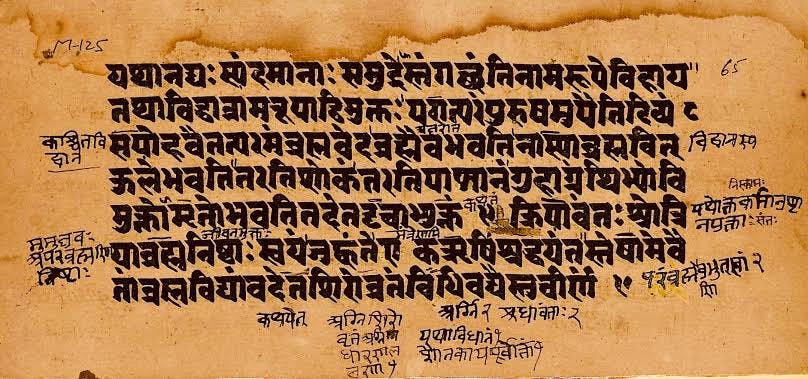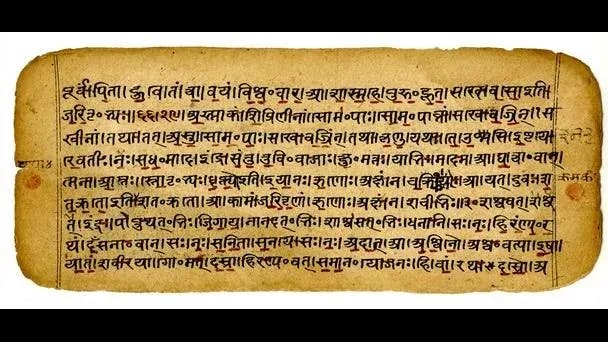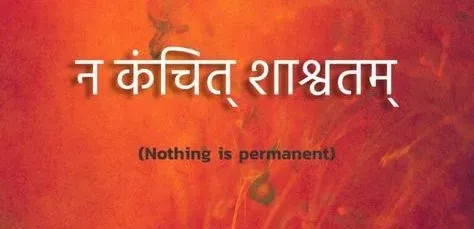Vedic Sanskrit- A Forgotten Language That Has Soul !
The Vedic Sanskrit mimics the early layers of linguistic progress. Even its outer mark, it is less restrictive than any classic tongue. It goes beyond many aspects and changes. It’s fluid and vague, but rich and subtle in its function of examples and tenses. And, from its psychological point of view, it has not yet crystallized and is not completely obsessed with the exact aspects of intellectual accuracy. Nevertheless, the Vedic Rishi is a living element, an element of energy, ingenuity, and formation. It’s still unobtrusive as an idea, but it’s a parent and outdated idea in itself. It conveys the memory of its roots in it and still pays attention to its history.
The Importance Of Sanskrit Language

The use of Rishi’s language was regulated by the psychology of this ancient language. When we use the word “wolf” or “cow” in English, it simply means that it is a designated animal. We are unaware of why we need to use that particular sound for impressions, except for the memorable traditions of the language. Also, you cannot use it for any other meaning or purpose, except for artificial style tools. But for Vedic Rishi, “vrika” meant tearing, and therefore, among other sensory demands, wolves. “Dhenu” meant caregiver, nutritionist, and therefore cow.
But the real and widespread meaning prevails, the derivative and the special are secondary.
Therefore, it was feasible for the fashioner of the hymn to employ these ordinary and common words with tremendous pliability, sometimes it is used to colour a more general sensation, and sometimes it is suppressed only as a traditional figure of the psychological belief in which his sensation remains, completely losing the image. It is in the brilliance of the psychology of this old dialect that the extraordinary figures of the Vedic symbols represented by Rishi must be understood, even most prominently and factually. That is to allow words like “Gritham”, clarified butter, “Soma”, God’s wine, and other corps to be used.
Listener's sense

We observe everywhere this practice of language conquering the word Vedic hymns. It was the extraordinary device with which the ancient mystics overcame the difficulty of their task. For lay worshipers the word “Agni” may have merely deduced the Vedic deity of fire, or it may have meant the principle of heat and light in physical nature, or it may have meant, to the greatest extent, a mere superhuman figure, one of many “wealth givers”, Which satisfies human desire.
How do you suggest to those who are able to have a deep belief in God’s psychological functions? The word itself performed that service. For Agni, it was referring to the strong, it was denoting bright brilliance, or even strength. So for beginners, wherever it takes place, the belief in the luminous energy that unites the worlds and lifts man to the Most High can be easily remembered, doing great work, the Purohit of human sacrifice.
Or how do we maintain it in the listener’s sense that all these deities are identities of the one universal deva? The names of the gods in their expression are only titles, meaningful names, and definitions, not personal designations. Mitra is Deva as the lord of affection and peace, Bhaga as the lord of pleasure, Surya as the lord of illumination, and Varuna as the reigning greatness and virtue of divine support and purification.
As Rishi Dirghatamas says, “The Existent is One,” “but the sages express It differently; they describe Indra, Varuna, Mitra, Agni; they call It Agni, Yama, Matarishwan.” The ideas in the earlier days of the Vedic knowledge had no requirement of this distinct opinion. The names of the gods carried to him their importance recalled the great crucial truth which persisted with him always.
Conclusion

But in the later ages, the very device wielded by the Rishis turned against the protection of knowledge. For language shifted its identity, denied its earlier pliability, and shed off old familiar senses; the word rented out and shrank into its outer and substantial consequence.
The ambrosial wine of the Ananda was forgotten in the material offers; the portrayal of the clarified butter reminded only the gross quencher to imaginary deities, lords of the fire and the cloud and the storm-blast, godheads void of any but physical energy and an external lustre. The letter dwelled on when the spirit was forgotten; the symbol, the body of the principle, continued, but the soul of knowledge had disappeared from its coatings.
...




